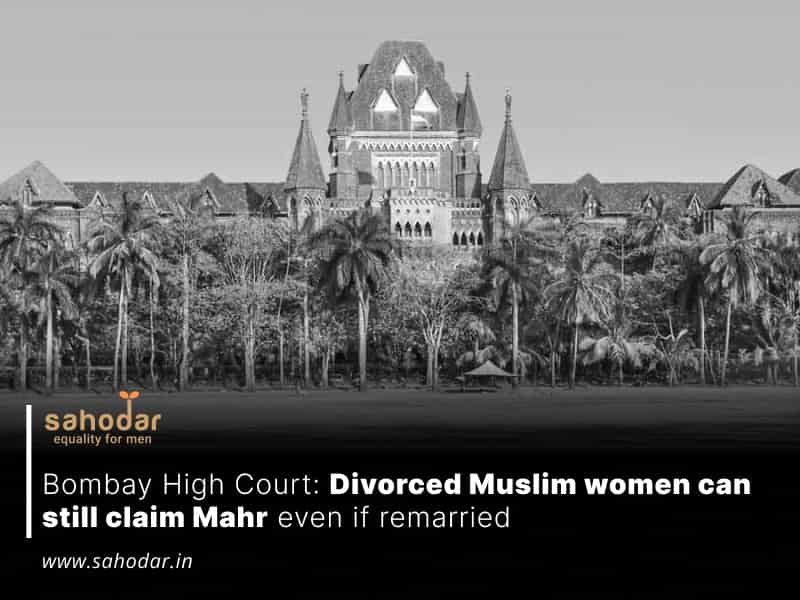Mahr is a lumpsum amount that a divorced Muslim woman is entitled to which is payable by husband to wife at the time of the divorce.
The Bombay High Court has ruled that a divorced Muslim woman has the right to receive mahr (a lump sum maintenance amount payable by the husband to the wife upon divorce) under Section 3 of the Muslim Women (Protection of Rights on Divorce) Act, 1986 (MWPA), even if she has remarried. Justice Rajesh Patil, a single judge, noted that Section 3(1)(a) of the MWPA lacks the term ‘remarriage,’ indicating that the protection of maintenance (mahr) is unconditional and remains applicable even after the woman remarries.
“Nowhere does the said Act intend to limit the protection that is due to the former wife on the grounds of the remarriage of the former wife. The essence of the Act is that a divorced woman is entitled to a reasonable and fair provision and maintenance regardless of her remarriage. The fact of divorce between the husband and wife is in itself sufficient for the wife to claim maintenance under section 3(1)(a). Section 3 does not absolve the husband of his duty to make and pay a reasonable and fair,” the judge observed in the order.
The Court clarified that introducing a condition in the Act absolving the husband of his duty upon the wife’s remarriage would lead to intentional delay on the husband’s part until the wife gets married.
Section 3 of the Act defines ‘mahr’ or dower, which is a lump sum amount granted to a divorced Muslim woman.
Sub-clause (1)(a) specifies a fair and reasonable maintenance for the woman during the iddat period, a short 2-3 month period after the marriage ends.
This judgment was in response to a revision application challenging a maintenance order issued by the Magistrate in Chiplun, subsequently upheld and increased by the Sessions Court in Ratnagiri.
The couple married in 2005, had a daughter, and divorced in 2008. In 2012, the wife sought maintenance under Section 3(1)(a).
In 2014, the Magistrate granted ₹4,32,000 as lump sum maintenance, payable by the petitioner within 2 months. The petitioner appealed to the sessions court.
In 2017, the sessions court dismissed the appeal and increased the maintenance to ₹9 lakh, payable within 2 months. Interest at 8% per year would accrue if not paid promptly.
The petitioner challenged this in the High Court, having already paid ₹1,50,000 to the respondent in intervals.
Meanwhile, the woman remarried in 2018.
The petitioner sought to annul the sessions court order, citing the woman’s remarriage.
Justice Patil disagreed, asserting that the entitlement to fair and reasonable provision and maintenance for a divorced wife is determined at the time of divorce and is unaffected by her subsequent remarriage.
“On the date of passing of impugned order the amount payable by the husband got crystallized, therefore, even in the future if the divorced wife re-marries, it will not make a difference if the amount is payable in lumsum. The difference would be only when the amount is payable monthly. Therefore, the amount of ₹9,00,000, in my opinion in fair and reasonable,” the Court held.

